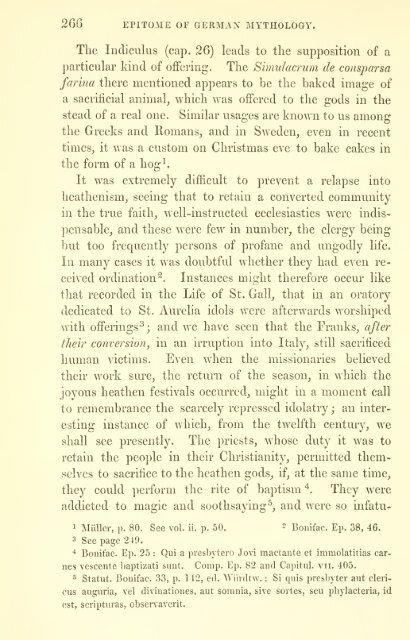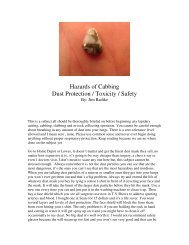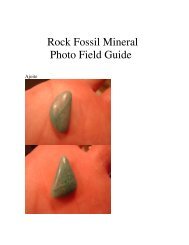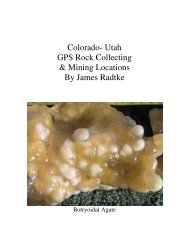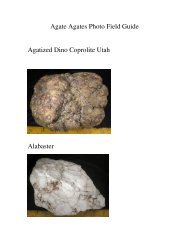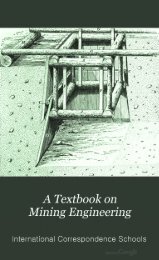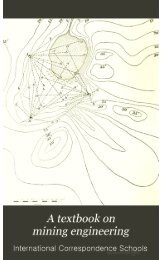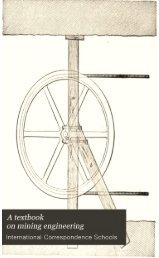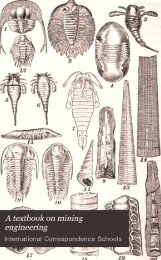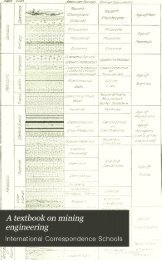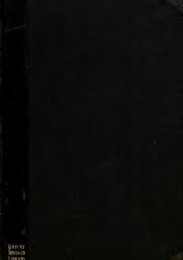- Page 1 and 2:
M^^ /
- Page 3:
^SSiNi? -^
- Page 10 and 11:
PRINTED BY RICHARD TAYLOR, RED LION
- Page 13:
— CONTENTS. Preface Page vii Nort
- Page 16 and 17:
: Vlll PREFACE. paring the several
- Page 18 and 19:
X PREFACE. the later Edda of Suorri
- Page 20 and 21:
Xll PREFACE. and even in Naples, ac
- Page 23 and 24:
NORTHERN MYTHOLOGY. INTRODUCTION. l
- Page 25 and 26:
NORTHERN MYTHOLOGY. SECTION I. A vi
- Page 27 and 28:
NORTHERN MYTHOLOGY. 5 they fixed th
- Page 29 and 30:
NORTHERN MYTHOLOGY. 7 her; the othe
- Page 31 and 32:
; ;: NORTHERN MYTHOLOGY, • 9 alta
- Page 33 and 34:
NORTHERN MYTHOLOGY. 11 against whos
- Page 35 and 36:
— — : : NORTHERN MYTHOLOGY. 13
- Page 37 and 38:
NORTHERN MYTHOLOGY. 15 together wit
- Page 39 and 40:
NORTHERN MYTHOLOGY. 17 derstand, th
- Page 41 and 42:
. — NORTHERN MYTHOLOGY. 19 logica
- Page 43 and 44:
NORTHERN MYTHOLOGY. 21 Lerad are ea
- Page 45 and 46:
; : ; ; ; ; NORTHERN MYTHOLOGY 23
- Page 47 and 48:
NORTHERN MYTHOLOGY. 25 voke him^ Ni
- Page 49 and 50:
;; NORTHERN MYTHOLOGY. 27 bristle),
- Page 51 and 52:
- NORTHERN MYTHOLOGY. 29 mead in hi
- Page 53 and 54:
NORTHERN MYTHOLOGY. 31 aspect, but
- Page 55 and 56:
NORTHERN MYTHOLOGY. 33 Like Friggj
- Page 57 and 58:
gins. She knows the decrees of fate
- Page 59 and 60:
NORTHERN MYTHOLOGY. 37 trolls (demo
- Page 61 and 62:
NORTHERN MYTHOLOGY. 39 spoiled. The
- Page 63 and 64:
XORTHERX MYTHOLOGY. 41 To the ^Esir
- Page 65 and 66:
NORTHERN MYTHOLOGY. 43 into the ves
- Page 67 and 68:
. NORTHERN MYTHOLOGY. 45 besides to
- Page 69 and 70:
; NORTHERN MYTHOLOGY. 47 inquire wh
- Page 71 and 72:
NORTHERN MYTHOLOGY. 49 ;: thou art
- Page 73 and 74:
NORTHERN MYTHOLOGY. 5l could not co
- Page 75 and 76:
; NOftTHERN MYTHOLOGY. 53 along the
- Page 77 and 78:
NORTHERN MYTHOLOGY. 55 swered Loki.
- Page 79 and 80:
NORTHERN- MYTHOLOGY. 57 diTjve out
- Page 81 and 82:
NORTHERN MYTHOLOGY. 59 another oak.
- Page 83 and 84:
NORTHERN MYTHOLOGY. 61 swift-footed
- Page 85 and 86:
NORTHERN MYTHOLOGY. 63 walking fort
- Page 87 and 88:
NORTHERN MYTHOLOGY. 65 from the gro
- Page 89 and 90:
NORTHERN MYTHOLOGY. 67 hurled his h
- Page 91 and 92:
NORTHERN MYTHOLOGY. Oy then the ket
- Page 93 and 94:
NORTHERN MYTHOLOGY. 71 into the ear
- Page 95 and 96:
; NORTHERN MYTHOLOGY. 73 ing then h
- Page 97 and 98:
: NORTHERN MYTHOLOGY. 75 })ut liis
- Page 99 and 100:
NORTHERN MYTHOLOGY. 'l'^ though onl
- Page 101 and 102:
; bursty loose the wolf run forth ;
- Page 103 and 104:
NORTHERN MYTHOLOGY. 81 In this sea-
- Page 105 and 106:
NORTHERN MYTHOLOGY. 83 ; and murder
- Page 107 and 108:
; NORTHERN MYTHOLOGY. 85 skates and
- Page 109 and 110:
NORTHERN MYTHOLOGY. 87 took it priv
- Page 111 and 112:
NORTHERN MYTHOLOGY. 89 brought him
- Page 113 and 114:
NORTHERN MYTHOLOGY. 91 way she had
- Page 115 and 116:
NORTHERN MYTHOLOGY. 93 her two sons
- Page 117 and 118:
NORTHERN MYTHOLOGY. 95 drinking mea
- Page 119 and 120:
•'* That - NORTHERN MYTHOLOGY. 97
- Page 121 and 122:
NORTHERN MYTHOLOGY. 99 She received
- Page 123 and 124:
NORTHERN MYTHOLOGY. 101 these event
- Page 125 and 126:
NORTHERN MYTHOLOGY. 103 them their
- Page 127 and 128:
NORTHERN MYTHOLOGY. 105 the gate of
- Page 129 and 130:
NORTHERN MYTHOLOGY. 107 the will of
- Page 131 and 132:
— ; NORTHERN MYTHOLOGY. 109 and p
- Page 133 and 134:
NORTHERN MYTHOLOGY. Ill ; moment he
- Page 135 and 136:
NORTHERN MYTHOLOGY. 113 farewell, a
- Page 137 and 138:
NORTHERN MYTHOLOGY. 115 vary in dif
- Page 139 and 140:
NORTHERN MYTHOLOGY. 117 to signify
- Page 141 and 142:
NORTHERN MYTHOLOGY. 119 composed, c
- Page 143 and 144:
NORTHERN MYTHOLOGY. 121 abortive. T
- Page 145 and 146:
NORTHERN MYTHOLOGY. 123 personages,
- Page 147 and 148:
NORTHERN MYTHOLOGY. 125 they mingle
- Page 149 and 150:
NORTHERN MYTHOLOGY. 127 Odin for el
- Page 151 and 152:
NORTHERN MYTHOLOGY. 129 ; the parts
- Page 153 and 154:
NORTHERN MYTHOLOGY. 131 earth^s fer
- Page 155 and 156:
— ; NORTHERN MYTHOLOGY. 133 : ; t
- Page 157 and 158:
NORTHERN MYTHOLOGY. 135 the myth of
- Page 159 and 160:
; NORTHERN MYTHOLOGY. 137 among for
- Page 161 and 162:
NORTHERN MYTHOLOGY. 139 ning, its f
- Page 163 and 164:
NORTHERN MYTHOLOGY. 141 the hair_,
- Page 165 and 166:
NORTHERN MYTHOLOGY. 143 from above,
- Page 167 and 168:
; NORTHERN MYTHOLOGY. 145 Illustrat
- Page 169 and 170:
NORTHERN MYTHOLOGY. 147 mens from m
- Page 171 and 172:
NORTHERN MYTHOLOGY. 149 Thor^ they
- Page 173 and 174:
NORTHERN MYTHOLOGY. 151 to the plan
- Page 175 and 176:
NORTHERN MYTHOLOGY. 153 rock; as no
- Page 177 and 178:
KORTHERN MYTHOLOGY. 155 or sacred o
- Page 179 and 180:
NORTHERN MYTHOLOGY. 157 myth concer
- Page 181 and 182:
NORTHERN MYTHOLOGY. 159 idea of pro
- Page 183 and 184:
; NORTHERN MYTHOLOGY. 161 whom he o
- Page 185 and 186:
NORTHERN MYTHOLOGY. 163 loud-soundi
- Page 187 and 188:
: ; NORTHERN MYTHOLOGY. 165 veyed H
- Page 189 and 190:
NORTHERN MYTHOLOGY. 167 in daring;
- Page 191 and 192:
NORTHERN MYTHOLOGY. 169 name of her
- Page 193 and 194:
; NORTHERN MYTHOLOGY. 171 which is
- Page 195 and 196:
of the chariot. NORTHERN MYTHOLOGY.
- Page 197 and 198:
'^ XORTHERX MYTHOLOGY. 175 " On the
- Page 199 and 200:
NORTHERN MYTHOLOGY. 177 at once, ex
- Page 201 and 202:
; NORTHERN MYTHOLOGY. 179 bright-gr
- Page 203 and 204:
NORTHERN MYTHOLOGY. 181 in the bowe
- Page 205 and 206:
NORTHERN MYTHOLOGY. 183 mouth ^, Si
- Page 207 and 208:
3 Page 81. Lex. Mythol. p. 398 ; Vo
- Page 209 and 210:
NORTHERN MYTHOLOGY. 187 erroneous.
- Page 211 and 212:
NORTHERN MYTHOLOGY, 189 as has alre
- Page 213 and 214:
fields NORTHERN MYTHOLOGY. 191 (Bri
- Page 215 and 216:
NORTHERN MYTHOLOGY. 193 but why Bol
- Page 217 and 218:
NORTHERN MYTHOLOGY. 195 typhon, or
- Page 219 and 220:
; NORTHERN MYTHOLOGY. 197 ence is a
- Page 221 and 222:
NORTHERN MYTHOLOGY. 199 etc. is sig
- Page 223 and 224:
NORTHERN MYTHOLOGY. 201 sist. Here
- Page 225 and 226:
NORTHERN MYTHOLOGY. 203 earthly des
- Page 227 and 228:
NORTHERN MYTHOLOGY. 205 between sum
- Page 229 and 230:
207 APPENDIX. THE GROTTASAVNGR, OR
- Page 231 and 232:
— APPENDIX. 209 sacred to Frey, b
- Page 233 and 234:
APPENDIX. 211 wisdom, that many dif
- Page 235 and 236:
APPENDIX. 213 supernatural effects
- Page 237 and 238: APPENDIX. 215 and set witli stones
- Page 239 and 240: APPENDIX. 217 other animal transpor
- Page 241 and 242: APPEXDIS. 219 superstitions may hav
- Page 243: APPENDIX. 2.21 king or a chieftain
- Page 246 and 247: 224 EPITOME OF GERMAN MYTHOLOGY.
- Page 248 and 249: 226 EPITOME OF GERMAN MYTHOLOGY. my
- Page 250 and 251: '- Midler, 228 EPITOME OF GERMAN MY
- Page 252 and 253: 230 EPITOME OF GERMAN MYTHOLOGY, "
- Page 254 and 255: 232 EPITOME OF GERMAN MYTHOLOGY. he
- Page 256 and 257: 234 EPITOME OF GERMAN MYTHOLOGY. Sc
- Page 258 and 259: 236 EPITOME OF GERMAN MYTHOLOGY. wh
- Page 260 and 261: ; 238 EPITOME OF GERMAN MYTHOLOGY.
- Page 262 and 263: ; 240 EPITOME OF GERMAN MYTHOLOGY.
- Page 264 and 265: 242 EPITOME OF GERMAN MYTHOLOGY. ea
- Page 266 and 267: . 244 EPITOME OF GERMAN MYTHOLOGY.
- Page 268 and 269: 246 EPITOME OF GERMAN MYTHOLOGY. th
- Page 270 and 271: 248 EPITOME OF GERMAN MYTHOLOGY. wh
- Page 272 and 273: 250 EPITOME OF GERMAN MYTHOLOGY. fa
- Page 274 and 275: ! Cumin-bread 252 EPITOME OF GERMAN
- Page 276 and 277: 254 EPITOME OF GERMAN MYTHOLOGY. to
- Page 278 and 279: 256 EPITOME OF GERMAN MYTHOLOGY. in
- Page 280 and 281: : 258 EPITOME OF GERMAN MYTHOLOGY.
- Page 282 and 283: 2G0 EPITOME OF GERMAN MYTHOLOGY. pr
- Page 284 and 285: 262 EPITOME OF GERMAN MYTHOLOGY. qu
- Page 286 and 287: ; 26 i EPITOME OF GERMAN MYTHOLOGY.
- Page 290 and 291: 268 EPITOME OF GERMAN MYTHOLOGY. ma
- Page 292 and 293: 270 EPITOME OF GERMAN MYTHOLOGY. ad
- Page 294 and 295: vclut 272 EPITOME OF GERMAN MYTHOLO
- Page 296 and 297: — 274 EPITOME OF GERMAN MYTHOLOGY
- Page 298 and 299: 276 EPITOME OF GERMAN MYTHOLOGY. la
- Page 300 and 301: 278 EPITOME OF GERMAN MYTHOLOGY. th
- Page 302 and 303: — . 280 EPITOME OF GERMAN MYTHOLO
- Page 304 and 305: 282 EPITOME OF GERMAN MYTHOLOGY. gl
- Page 306 and 307: ^ 284 EPITOME OF GERMAN MYTHOLOGY.
- Page 308 and 309: 286 EPITOME OF GERMAN MYTHOLOGY. dr
- Page 310 and 311: 288 EPITOME OF GERMAN MYTHOLOGY. on
- Page 312 and 313: : 290 EPITOME OF GERMAN MYTHOLOGY.
- Page 314 and 315: 292 EPITOME OF GERMAN MYTHOLOGY. wh
- Page 317 and 318: ; INDEX. MgIR. SeeOesir. iEitri. Se
- Page 319 and 320: ; INDEX. 297 Elves, 25 andn.5, 147,
- Page 321 and 322: ; INDEX. 299 will blow his horn at
- Page 323 and 324: , ; INDEX. 301 Menia, a slave, 207.
- Page 325 and 326: INDEX. 303 s. Saeg, name of a bucke
- Page 327 and 328: INDEX. 305 Vafthrudnir, a giant vis
- Page 329 and 330: ' INDEX. 307 Kobolds, 253. Kornweib
- Page 334 and 335: im^^ ^S MY20'5:! Date
- Page 336: BL860.T51V.1 Northern mythology : c


